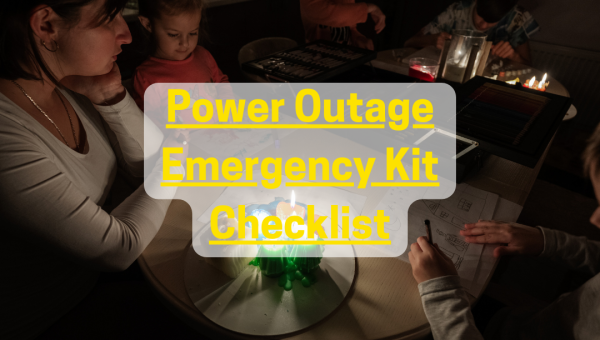Emergency Checklists

Be prepared for every eventuality with detailed checklists for various survival scenarios. From hurricane preparations to medical emergencies, find step-by-step guides to ensure you're ready for anything.
Discuss this article
I'd like to add a couple of things from my own experience. First off, don't just rely on a digital checklist. It's good to have a hardcopy too, especially when you're dealing with survival situations where power or technology might not always be available. I've learned that the hard way after a severe storm left us without power for a week.
Secondly, it might be helpful to categorize your checklist based on the urgency or importance of tasks or items. In a SHTF scenario, knowing what to prioritize can make all the difference.
Lastly, I'd suggest incorporating a system for tracking what's been done or what's been used up. That way, you're always on top of things and can resupply or redo tasks as needed.
This might seem like a lot, but trust me, when you're floating out in the open sea with a couple of kiddos, you'd want all the organization and preparedness you can get. This article has done a great job of laying out the basics, and I hope my two cents can help some of you out there. Keep your sails full and your preps plentiful, folks!

In a world where severe weather often takes the spotlight as the primary culprit behind power outages, it's crucial to remember that the lights can flicker, and power can vanish for various reasons, regardless of the season. According to the U.S. Energy Information Administration, the average annual duration of power interruptions for U.S. customers is a staggering six hours. While extended outages may be infrequent, preparing for the unpredictable is your key to ensuring the best possible outcome. To assist you in this endeavour, we encourage you to utilize our Power Outage Emergency Kit Checklist as your guide to building the ideal emergency kit tailored to your needs.
Discuss this article
This is a sample. Adjust to fit your specific requirements.
Blackout Checklist
Before a Power Outage:
-
Generator Check:
- Ensure the generator is in proper working condition.
- Check fuel levels and have extra fuel stored safely.
- Test run the generator to make sure it starts and generates power.
- Keep generator user manual handy for reference.
-
Extension Cord Preparation:
- Ensure you have marked extension cords for each essential appliance.
- Place the cords in accessible locations for easy setup.
- Check extension cords for any damage or wear.
-
Emergency Supplies:
- Prepare an emergency kit with flashlights, batteries, candles, matches, and a battery-powered radio.
- Keep a supply of non-perishable food, bottled water, and any necessary medications.
Discuss this article
I'd like to add a few pointers, based on my experience. First, have a plan for water. If you're dependent on an electric pump for water, ensure you have an alternative source or enough stored for drinking, cooking, and sanitation during extended outages. For us, our sailboat's desalination system is a lifeline, turning saltwater into potable water.
Next, let's talk about food. You've mentioned non-perishable food, and I can't stress this enough. However, consider including items that require no cooking or refrigeration. Energy bars, canned fruits, and vegetables with pop-tops are good options.
You've rightly pointed out the importance of communication. In addition to charging cell phones, consider investing in a good quality hand-crank radio. It can provide crucial information during emergencies when cell service is down.
Lastly, just like navigating uncharted waters, blackouts can be unpredictable. Make sure your plan is flexible and can be adapted to different situations.
Remember, being prepared isn't just about having a plan; it's about making sure your plan is viable when the lights go out. Stay safe, folks!

